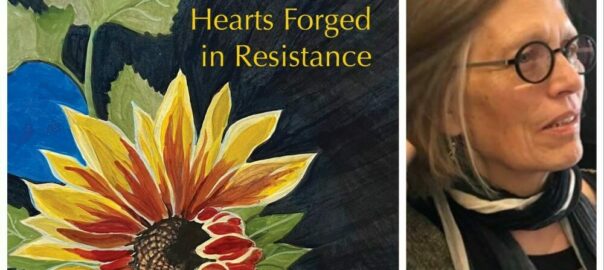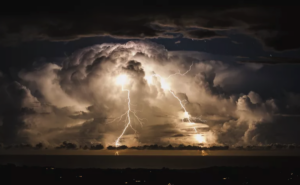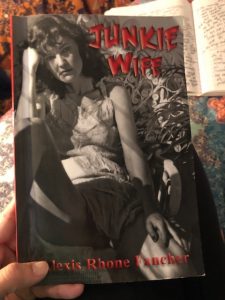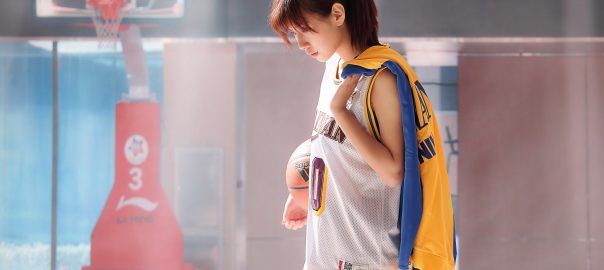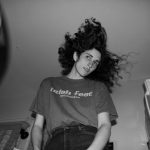SHE
by dm philips
Here is everything I know about her.
She is a mother now. Then, she was unmothered. Non-mothered? Not mothered well. Almost alone. A lonely child, vassal to a just-older sister who was just plain mean. Shuttled around the world by her parents in the service of other, lesser gods: flight, love, cheap housing.
She was unfathered, too. Not-well fathered. Father, unwell. Is it true he threw her pregnant mother down the stairs? Well, if he didn’t, he could have. Just plain mean. A mean drunk, that’s what I heard. Perhaps that’s why she doesn’t drink. He’s dead now, by the way. I wonder if she cares. If she feels his absence is now complete.
It is important to mention: she is a mother. Becoming a mother made sense to her. Being a mother seems like the fulfillment of other goals unreached. Like time, unlost.
She spent her time in the shadow of her sister. Forever trying to be good, to be enough. To be good enough. Born just 10 months earlier, she grew larger by her taunts. The sister drove deep in her a sense of unworthiness, a shame she’d struggle to shake. Once slender, she turned to food to fill what was unfillable. Her lean body rounded out pleasantly, then unpleasantly. Not unpleasant to me, but she spends her time now talking about diets, about order, about “tomorrow”.
Her children have round bodies, too. Round, sweet bodies on the verge on distended, unsweet. She stuffs them with treats. This is one version of love.
She was always wanting for friends, yet never quite finding them. Those she found, she trusted deeply, even the untrustworthy ones. She was left at the mall once. Abandoned in a blizzard. The mall closed, the governor called a “state of emergency”. I imagine her standing outside in the thin clothing she wore then. Huddled by the door, watching snowdrifts fill the desolate parking lot. Wondering what to do, if anyone would come for her. Who did she wish for, in the state of emergency?
She was pregnant, more than once. She was hungry for sweetness and she found it briefly in unreliable, older men. Three, four, five abortions, that’s what I heard. Her mother knew, cursed her, damned her to a fiery hell. Is it true she threw her down the stairs? Well, if it isn’t, it could be. Her mother was always mean. History repeats itsef, unless we stop it.
She is the kindest person I know. She always tries. Even when people are cruel to her, she dips underneath their cruelty and tries harder. She is so sensitive, so freaking sensitive. She cries at the drop of a hat, at goodbyes, at movies. Her crying is sniffly and messy and wet. She tucks love notes scrawled in the handwriting of a grade school girl into my bags when I leave. She is complicated at drive-throughs. She wants everything on the side. She drinks coffee and then falls straight to sleep. She loves mint chocolate chip ice cream. Two scoops. She has talked about “going back to school” for the last fifteen years. Perhaps this year, she will.
When her son was sick, she slept sitting up for three weeks. He could not move or speak but sometimes she imagined he did and sprang up to check. She had known something was wrong. She brought him to the hospital before it was too late. She learned, then, to trust her instincts. Her motherly instincts, they were just enough. She was a mother, first.
I was there when she fell in love. I don’t know what they were doing behind closed doors, but it seemed to take an agonizingly long time to get to the good part. Every day for years he would come over and they would watch basketball and ‘Martin’ on television. My grandmother, who spoke little English yet loved this enormous, gentle Black man, would feed him bowls of rice and curry. She’s dead now. Maybe those were the good parts.
He would leave at 5:45 pm, just before her mother came home. Once, he lost track of time and was forced to hide in the closet. Why was he a secret? No matter— this is where I learned much of what I know, of what I’m telling you now. Through a shouting match. The abortions, the shame, all was yelled and screamed. There was pushing. There were stairs, maybe. A broken arm. That’s what I remember. That’s what I heard.
They used to play-wrestle, piling themselves on top of each other, giggling hysterically. Sometimes I would join. I was a lonely child, too. Their bodies were warm.
I wonder if they’re there, wrestling in their house, giggling, right now. With their three big, beautiful, brown children, who are all well. The mother, now the grandmother, might come over to babysit. She was not just plain mean, after all. Perhaps there are snowdrifts outside. The older sister, now the lonely one, calls for her advice. Sometimes the call goes to voicemail while she speaks to her other friends. Her younger sister loves her, too, thinks she’s the kindest person she’s ever met. Feels mothered by her. Well-mothered. Mothered, well.
That’s what I heard. That’s what I know.
_____________________
dm philips
dm philips is a storyteller and birthworker born in goa, india, and raised in the northeastern US. her work explores queer diaspora, madness, unmothering, and finding/coming home. dm is a columbia university community scholar and two-time VONA/voices fellow. her writing can be found in the decolonizer, hot metal bridge, and elsewhere.
